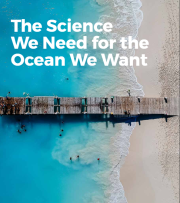WESTPAC concluded its fourth Summer School on “Monsoon Onset Monitoring and its Social and Ecosystem Impacts” (MOMSEI) on 23 August 2013 in Terengganu, Malaysia.
The school was attended by 25 young scientists from heavily affected areas by the Asian Monsoon such as Myanmar, Thailand, Malaysia, Indonesia, Vietnam, China, Bangladesh, Sri Lanka and Maldives. The one-week Summer School covered the basic features of the Asian monsoon, its multi-scale variations and long-term trends, monsoon forcing and its variations and influence on marine ecosystems. Lecturers invited include: Prof. Tim Li from the International Pacific Research Center (IPRC), University of Hawaii; Dr. Tianjun Zhou, co-chair of CLIVAR Asian-Australian Monsoon Panel; Prof. Fredolin Tangang, Vice Chair of IPCC Working Group I; and Dr. Weidong Yu,co-chair of CLIVAR Indian Ocean Panel. Assoc. Prof. Liew Hock Chark and Assoc. Prof. Saifullah Jaman from University of Terengganu, Malaysia also shared their studies on regional coral reef and endangered marine mammals.
About half of the world population inhabits the region of the Asian monsoon. Asian Summer Monsoon is known to bring huge amounts of moisture from the Indian Ocean, resulting in massive flooding in many areas. In contrast, the Asian Winter Monsoon is more associated with long drought periods from September to March, since the Winter Monsoon blows northeasterly from Mongolia and northwest China, and the Himalayas blocks much of the cold wind and moisture from reaching Southern Asia, keeping the region warm and dry. Agriculture and more widely, economy and society across Asia are critically influenced by the variability of the monsoon.
In view of the importance to improve the forecasting capability and understanding of the Asian Monsoon, the Summer School serves as a catalytic platform to enhance the knowledge of young scientists in the region, and stimulate multi-disciplinary studies/analysis on the Asian Monsoon, its interactions with ocean and its possible impact on the ocean ecosystems.
The fourth MOMSEI Summer School was hosted by the Institute of Ocean and Environment (http://inos.umt.edu.my/), University of Terengganu, Malaysia, and organized in cooperation with the GEF/FAL Bay of Bengal Large Marine Ecosystem (BoBLME).




